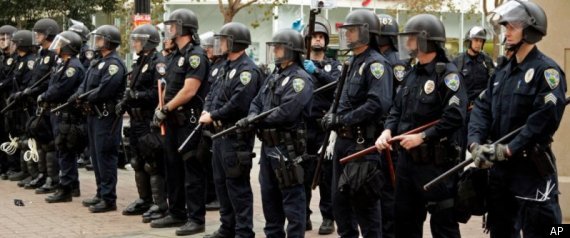City Awards Police 12.5 Percent Raise, Bypassing Public Input
Nov 28, 2019
Posted in Police-Public Safety

By Ken Epstein
The Oakland City Council, bypassing opportunities for public input, rushed this week to approve a Schaaf administration agreement with the Oakland Police Officers Association (OPOA) that gives officers a 12.5 percent raise over the next five years and locks in controversial provisions that reform advocates say are hampering efforts to strengthen police accountability.
The only council member to vote against the new Memorandum of Understanding (MOU) with OPOA was Rebecca Kaplan. Councilmember Desley Brooks did not attend the Tuesday night meeting.
The second and final vote on the approval of the MOU was scheduled for the Dec. 11 City Council meeting.
The agreement has already been ratified by OPOA members.
A huge windfall for the city, the agreement drastically reduces medical benefits for police retirees, saving the city an estimated $123 million over the life of the contract as much as $350 million over 25 years, according to city officials.
The average 2.5 percent a year raise does not start until 2020 and is not likely to keep up with the rate of inflation.
The agreement perpetuates other provisions of the current MOU, include those that establish police disciplinary procedures and grants the OPOA the right to a fairly unlimited right to “meet and confer” over policy changes affecting public safety, which has held up reforms for as long as a year on several occasions.
As a result, new City Council members who will be seated in January will not have an opportunity to review the MOU’s provisions during their four-year terms.
“Nobody knew they were negotiating,” said Rashidah Grinage of the Oakland Police Accountability Coalition, pointing out that the current MOU does not expire for another seven months and the firefighters are now in their second year of working without a contract.
The administration sent the agreement directly to the council, placing it on the consent calendar where it might receive minimal notice, bypassing public discussion at the Public Safety Committee and not even sending the proposal to the Rules and Legislation Committee for scheduling on a council agenda.
Nor was the Police Commission given an opportunity to express its opinion on the new MOU.
“This was definitely underhanded and intentional,” said Grinage. She noted the irony of giving the police a raise on the same day that an irate federal judge chastised the city and OPD for turning in reports that misrepresent the use of force and other requirements of the court-supervised Negotiated Settlement Agreement (NSA).
After 15 years, the city has not been able to fully comply with the NSA. In Tuesday’s court hearing, the judge added back to the noncompliant list three requirements that had formerly been listed as compliant.
“After all this time, they are going backwards,” said Grinage.
According to Grinage, members of the Coalition for Police Accountability met with Mayor Schaaf on Oct. 11, where the mayor said she was willing to discuss modifying the MOU, including a provision that says in disciplinary hearings an officer’s history of misbehavior can only be examined going back a maximum of five years.
However, Mayor Schaaf ignored what she said at that meeting when her administration sent the new MOU to the council. The representative of the City Attorney Barbara Parker’s office who attended Tuesday’s council meeting said the MOU was a labor agreement, and therefore the Police Commission has no right to express an opinion on it.
A local labor leader in the city told the Post why he thought the OPOA might be willing to settle for contract with only a modest raise and a huge cut in medical benefits.
“Everyone is expecting a recession in 2020.” He said. “Also making it a five-year deal means that they don’t have to deal with the incoming board where they think they won’t have a majority anymore.”
In addition, he said, the recent issues raised by the federal may have encouraged the OPOA to move quickly to settle the MOU, he said.
By the Oakland Post’s deadline, Mayor Schaaf did not respond to a request for comment.